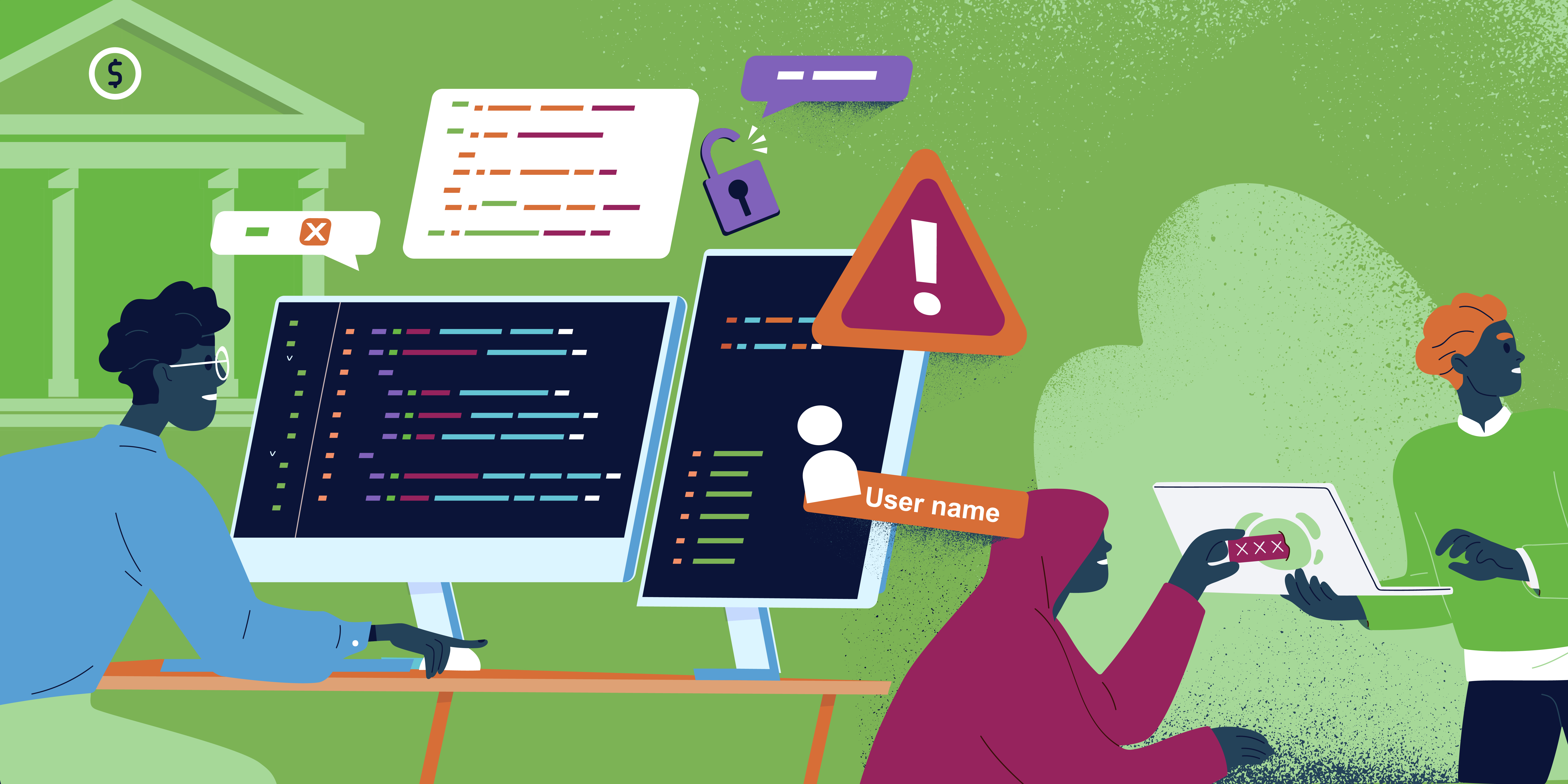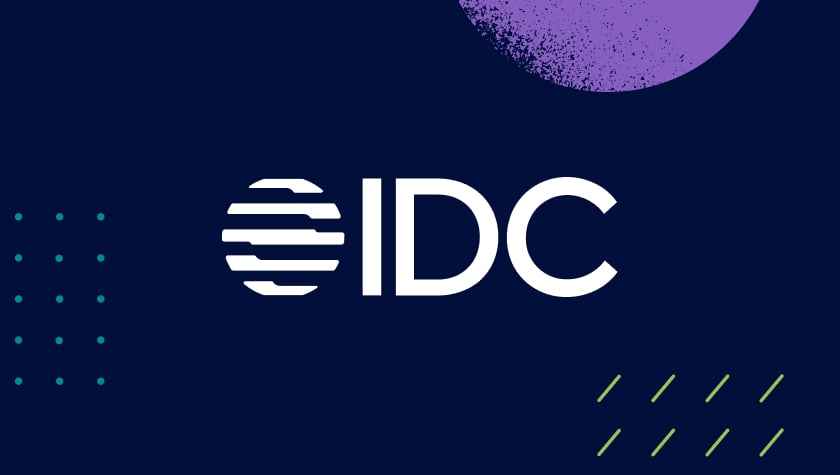
Cybercriminals are crafty. They use all means to get what they want. If they’re successful, innocent people can lose their life savings in a matter of seconds. As more consumers shift to digital banking, banks need to prepare for an exponential increase in online fraud.
With the closure of many physical bank branch locations due to the pandemic, we’re seeing a surge in customers using digital banking systems. This rapid shift to digital banking offers financial institutions (FIs) an opportunity to expand their online customer base, but it also comes with a challenge. Thousands of new customers are shifting to online banking with little protection or preparation on preventing online banking frauds.
3 Biggest Online Fraud Challenges for Banks
Here are three core problems that banks must address.
1. Expansion of digital services increases the risk of attacks
Existing banking technologies designed to take advantage of online channels are not prepared to handle all types of fraud or emerging fraud tactics. FIs face an ongoing battle against expanding attack types and preventing online fraud attacks as the digital landscape develops.
Cybercriminals are exploiting these new loopholes. They’re also developing tools to capture sensitive customer data. These account takeovers are then further used to make unauthorized transactions.
2. Social engineering frauds
Fraudsters often impersonate customer service representatives to con ordinary people. Whether it is clicking on an online link that redirects to a fake portal or unwittingly authorizing fraudulent transactions, social engineering crimes are a reality that leaves harmful impacts on real people’s lives.
A recent FBI report found incidents of digitally-based crimes increased by 70% from 2019 to 2020 with many of these incidents tied to some social engineering. Meanwhile, a separate report by telecom giant Verizon also highlighted the serious threat posed by social engineering fraud in 2020.
Interpol, the premier inter-governmental organization, predicts a further increase in such crimes. Unstable social and economic situations, plus cybercriminals eager to exploit this weakness makes people highly vulnerable to social engineering fraud. Fraudsters are capitalizing on the uncertainty induced by COVID-19 to cause more damage than ever before.
Unfortunately, the traditional fraud prevention methods fail to catch advanced social engineering frauds.
3. Anti-fraud measures are difficult to implement
Finding permanent solutions for preventing online fraud is never easy. Most FIs struggle between teaching their users how to avoid internet frauds and delivering an enjoyable, seamless customer experience. Finding the right balance between ensuring a smooth journey for legitimate customers and stopping fraudsters can be challenging. If the measures add too much friction to the customer journey, banks could lose customers to competitors. But if they are too lenient, fraudsters will inevitably find loopholes to steal customers’ money or personal information.
Striking this balance is a challenging task, and it is not always easy to tell which side will win in the end. Here’s a starting point.
3 simple ways to bolster your company’s online fraud prevention
Given these challenges, what measures can you take to curb online fraud and keep your customers safe? Ideally, you want an advanced mechanism to prevent threats before they can do damage – as opposed to detecting and reacting to them after it’s too late.
Here are three simple measures to get started.
- Increase visibility into the risks your customers face in real-time;
- Recognize the stages of a fraud attack. Detect, analyze, and take action to protect your customers;
- Reduce downtime caused because of online fraud.
The idea is to look for a permanent solution that easily integrates with your existing platforms.
Do everything to protect your customers
Reducing exposure to online fraud can create lifelong, loyal customers. It results in repeat business, the most valuable currency in the modern world.
Once the damage is done to a customer under your brand’s name, those customers are unlikely to come back. So “how to stop cybercriminals?” is a question that has moved from mere routine office talk to meaningful boardroom discussions.
Given that nearly one-third of businesses in the Asia Pacific are fixated on increasing revenues, the lack of focus on fraud detection could lead to increased risks. FIs are in even greater danger of online fraud attacks because of the surge in digital transactions following the global pandemic.
Reacting to online fraud attacks after they have been detected is like trying to put out a fire. However, it’s more effective to stop the fire in the first place. That’s why banks should prioritize prevention over detection. The time to address these core challenges of online fraud is now. Otherwise, it could be too late for banks to regain their customers’ trust.
Download our eBook 6 Crucial Capabilities to Protect the Online Banking Journey to learn how to protect customer accounts from bad actors.
Share this article:
Sean Ryan
Sean Ryan is the Head of Feedzai's Fraud and Financial Crime Prevention in the Asia-Pacific region. Sean has over 25 years of experience in enterprise transformation, with 15 of those focused specifically on transformation across fraud and financial crime prevention. Previously, he held global leadership roles, with direct experience working across EMEA, Americas, and throughout the Asia Pacific. Prior to joining Feedzai, he provided independent advice specific to this domain, to clients across financial services, the technology sector, and top-tier services providers globally. He’s passionate about leveraging today's technology and data to prevent financial crime.
Related Posts
0 Comments6 Minutes
A Guide to Secure, Seamless User Authentication in Payments
Online payments demand a delicate balance between security and user experience. Consumers…
0 Comments7 Minutes
Combating Emerging Scams in the Philippines
The Philippines is witnessing remarkable growth in digital banking. Unfortunately, a…
0 Comments5 Minutes
Feedzai is a Leader in the 2024 IDC MarketScape for Enterprise Fraud Solutions
Exciting news! Feedzai, the world’s first RiskOps platform, is proud to have been named a…

